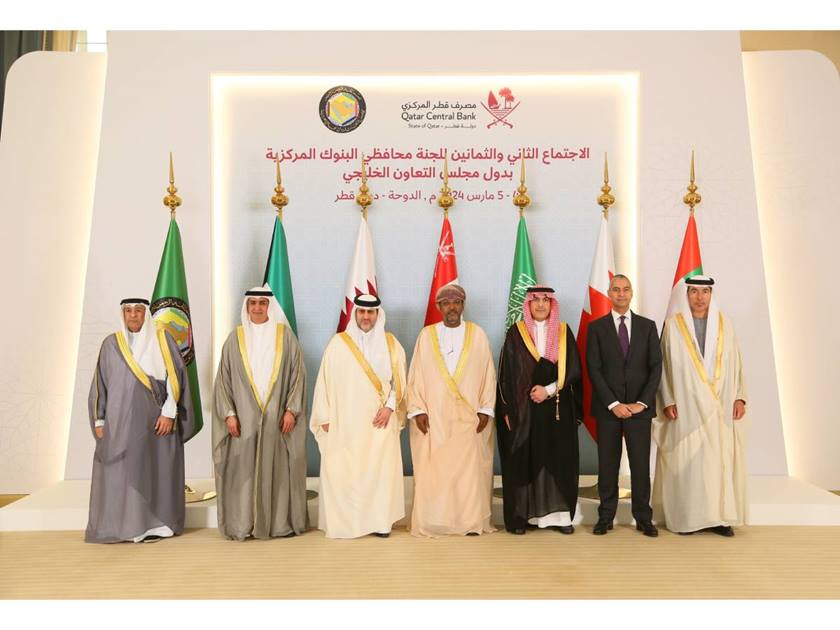Doha, Qatar–Governor of Qatar Central Bank Sheikh Bandar bin Mohammed bin Saoud Al-Thani has called for strengthening joint action among the Arab Gulf states, especially in light of the economic and financial challenges that the world is experiencing in relation with growth, sustainable development, financial stability, and interest rate policies, which would influence the growth in the countries of the region.
This came in his opening remarks as he chaired the 82nd meeting of the Committee of Central Banks Governors of the GCC in Doha today.
In this respect, more efforts are needed to strengthen joint action frameworks by promoting constructive dialogue and coordination efforts among the various GCC committees, namely the Committee of Central Banks Governors, in order to proactively address the challenges and ensure rapid developments in the financial and banking sector, thereby promoting growth opportunities.
The governor commended the GCC’s significant role in supporting the advancement of countries and people in the region. He stated that during the past several years, the GCC registered great achievements, which contributed to the advancement and prosperity of the region, helping them to achieve advanced rankings in various indicators and compete with developed countries in various fields.
He also praised the efforts undertaken by the Committee of Central Banks Governors of the Gulf Cooperation Council in supporting economic growth and maintaining financial stability in the Gulf countries thanks to the coordinated efforts in numerous financial and banking initiatives.
The governor called for exchanging experiences and coordinating joint initiatives to unify concepts and strengthen the protection systems to ensure financial and economic stability, especially in light of the unprecedented developments in Fintech and the resulting changes in banking and financial services in order to keep pace with this progress. This, according to him, may be achieved by developing a technological infrastructure and payment systems, along with appropriate rules and legislation to regulate the activities and maintain financial stability.
Al Thani also highlighted some of the risks lurking in financial systems as a result of new technologies, including those associated with cryptocurrencies and the accompanying financial risks associated with money laundering and terrorist financing operations, and the challenges associated with new developments in fraudulent operations related to financial crimes, which negatively affect financial stability and security and represent a threat to regulatory and financial systems, at both regional and global levels.
In this context, he stressed the need to raise the levels of cooperation between the authorities responsible for nurturing the financial and banking systems in the region to focus on developing flexible and innovative plans and solutions to confront these challenges and reduce the associated risks.
The meeting addressed a number of topics on the agenda, and appropriate decisions were taken.








